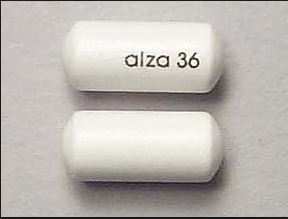There is quite a bit of confusion out there about the supply and availability of one of the staple ADHD medications, Concerta, which is the brand name of a long acting preparation of methylphenidate that uses a novel delivery system called OROS (Osmotic [Controlled] Release Oral [Delivery] System) to deliver the medication gradually throughout the day.
First of all, let me say that I have no affiliation and get no money from the pharmaceutical company, Janssen, that
makes the medication. However, for me like many physicians out there, Concerta has become one of the first medications I use to treat ADHD, in conjunction with a variety of nonpharmacological interventions.
Concerta is now off-patent and thus generic preparations have been available for quite some time. Some of these generics, in particular those made by Mallinckrodt and Kudco, didn’t use the same OROS technology and many patients have complained that these preparations don’t work as well as the brand name or another generic preparation by Watson/Actavis which makes an “authorized generic” preparation that does use the same OROS delivery (in fact it is exactly the same thing as Concerta but that’s another story).
In November, the FDA made a statement that their data suggest that the Mallinckrodt and Kudco generics are substantially different from Concerta to the point that they should no longer be considered therapeutically equivalent. One specific concern is that these generics may release the drug too slowly over the course of the day. As a result, the FDA no longer designated the Mallinckrodt and Kudco preparations as equivalent to Concerta (Mallinckrodt filed a lawsuit against the FDA about this but, again, that’s another story). Practically, this means that if a physician writes for Concerta, the pharmacy no longer can just substitute this for one of these generics, as they have been doing for people with Medicaid and many commercial insurance programs that do generic switches when possible.
This gets to be a problem because a) the Watson/Actavis generic and even the brand name Concerta are in short supply and 2) the OROS preparations have dropped off the insurance company formularies and can’t be obtained without the patient and prescriber jumping though many hoops, including failing other generic long acting stimulants. You can view the most recent version of Vermont Medicaid’s formulary here.
Here is what this all boils down to practically.
1. Prescribers need to write for “methylphenidate ER” if they are okay with patients getting the Mallinckrodt or Kudco preparations, which seems to be just fine for many people. Remember, the problem was therapeutic equivalency not safety. An informal discussion among child psychiatrists in our shop revealed that problems with the generics were few. However, you may want to watch out for the possibility that the medication won’t work well early in the day and then come on strong in the afternoon (the reverse patterns of what you usually see).
2. If a prescriber writes for Concerta, then you could well get a call from the pharmacy because either they will have to dispense brand name Concerta if they can’t (or won’t) get the authorized generic (which generally seems to be the case). That means the patient either pays the premium or the physician has to somehow get brand name Concerta approved by the insurance company.
3. Prescribers need to switch to a completely different long acting stimulant that is on the formulary.
It is sad but the bottom line here that is that, at least for now, one of the main “go to” ADHD medications in its original form seems to be off the table for most families. People are certainly complaining about this to the pharmaceutical companies, insurance carriers, and government agencies that are involved. Hopefully this problem will be resolved soon.
Tags: add, adhd, concerta, methylphenidate, ritalin


